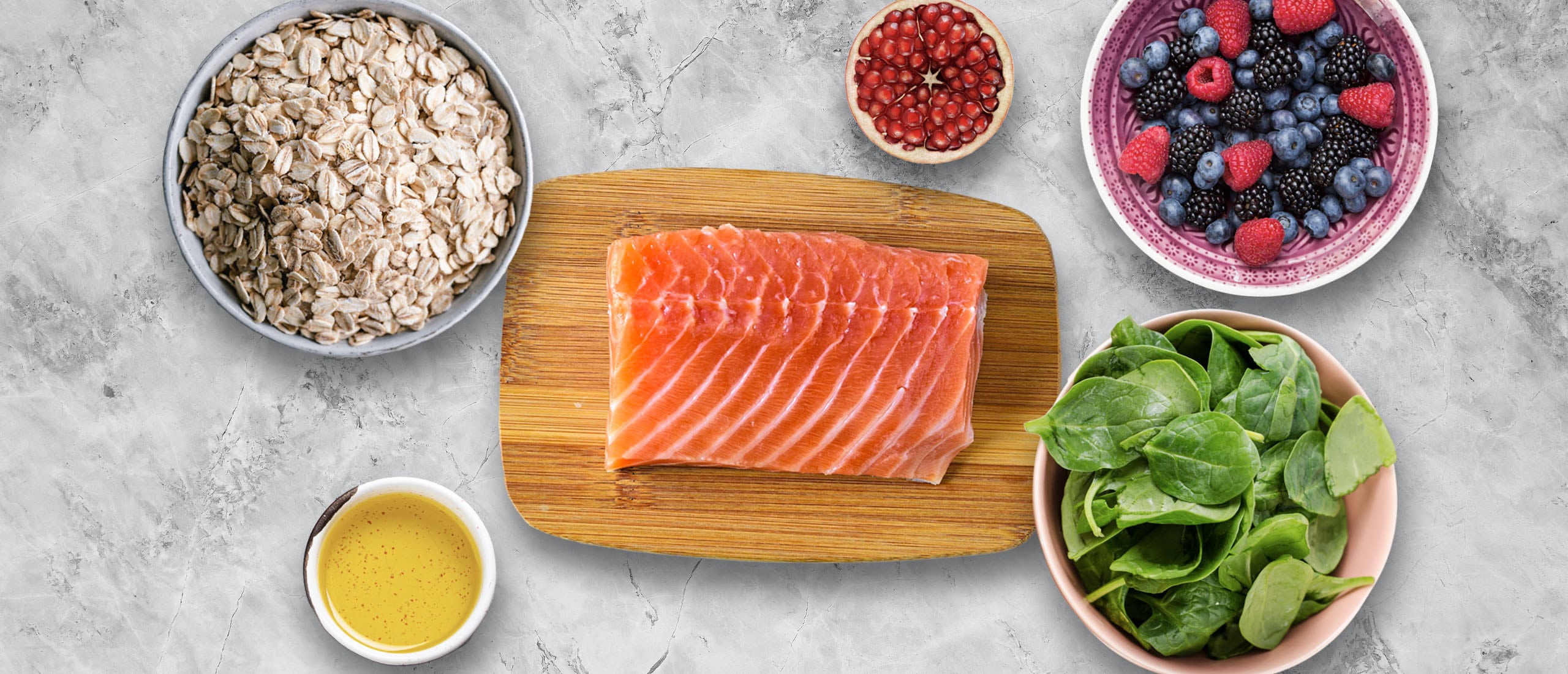Six Foods to Heal Your Gut Microbiome, According to a Functional Medicine Doctor
30-Second Takeaway
- Poor gut health is linked to an increased risk of Alzheimer’s, autoimmune conditions, and some cancers.
- A diet high in fiber and prebiotic foods supports a balanced gut microbiome.
A
A lack of energy, bloating and gas, constipation, and acne are just a few ways an unbalanced gut microbiome can torpedo your everyday health. Worse, letting gut issues go unchecked can give way to more debilitating chronic health conditions like Alzheimer’s and autoimmune disease, says New York-based functional medicine doctor Neil Paulvin, M.D., who focuses on longevity and optimization.
Research shows one of the biggest factors in keeping gut bacteria in balance is diet (1). Processed and sugary foods have been linked to an overgrowth in harmful proteobacteria (2), while people who follow a diet rich in fiber and prebiotic foods have a lower risk of irritable bowel syndrome, leaky gut, and colon cancer (3, 4).
Don’t know where to start? These are the five gut healing foods that Paulvin keeps on his weekly grocery list.

ABOUT THE EXPERT
Dr. Neil Paulvin has certifications in Family Medicine, Osteopathic Manipulation, and Anti-Aging and Regenerative Medicine. His practice in Manhattan combines traditional and alternative medicine to help patients live a healthy lifestyle and perform at their best.
Dr. Paulvin is recognized for his exceptional work applying a hyper-personal approach to help his patients optimize their health, perform better under pressure, recover faster, and move beyond the baseline.
The Best Gut Healing Foods, According to a Longevity Doctor
Resistant starch
Resistant starch—a type of carb that can’t be digested in your small intestine—helps decrease gut inflammation and produce SCFA (small chain fatty acids), says Paulvin. Foods like oats, barley, cereals, and lentils are all resistant starches.
Research shows that resistant starch ferments in your large intestine, which boosts your levels of beneficial bacteria (5). This may lead to less constipation, lower cholesterol, and lower risk of colon cancer.
Pomegranate
“Pomegranates contain indigestible fiber, which can help to calm an irritable bowel and trigger regular bowel movements, preventing or relieving constipation,” Paulvin says.
Indigestible fiber—also known as insoluble fiber—is the type that can’t be broken down by your digestive system. It helps shuttle waste through your intestines, which relieve constipation and prevent diarrhea or loose stools.
Pomegranate extracts increased levels of good bacteria in the digestive tract in a 2023 study, which also makes it an effective prebiotic (6).
Fish
Oily fish—like swordfish, salmon, and tuna—are a source of omega-3 fatty acids, which are thought to help regulate your gut microbiota, per Paulvin.
Omega-3 fatty acids lower inflammation by reducing oxidative stress (7). This lowers gut permeability, or the amount of water and nutrients that are able to leak through your intestinal lining. If you develop a leakage, you may be at risk for inflammation, digestive pain, diabetes, and irritable bowel syndrome (8).
Berries
Berries contain phenolic compounds, which can help balance bacteria populations and serve as a type of prebiotic, Paulvin says. “They can also relieve gut inflammation and have a cancer-preventative effect on colon cancer.”
Cherries, blueberries, blackcurrants, cranberries, and grapes are particularly high in phenols.
Green Leafy Vegetables
Like pomegranates, leafy greens are a great source of fiber. Collard greens, swiss chard, spinach, and beet greens contain the highest levels of fiber.
They also contain a specific type of gut-friendly sugar—called sulfoquinovose—per Paulvin.
While many sugars are associated with overgrowth of gut-harming yeast, sulfoquinovose feeds good bacteria in your gut.
Olive oil
Olive oil is high in polyphenols, which have been linked to a boost in gut bifidobacteria, a good-guy bacteria that has positive effects on cholesterol, obesity, and may help you feel full for longer (9).
Olive oil is a healthier alternative to other cooking oils. “Olive oil is considered a monounsaturated fatty acid, which has a lower risk of disease than choices like butter or coconut oil, which are rich in saturated fats,” Paulvin explains.
References
1. Singh, et al (2017). Influence of diet on the gut microbiome and implications for human health.
2. Satokari (2020). High Intake of Sugar and the Balance between Pro- and Anti-Inflammatory Gut Bacteria.
3. Akbar, et al (2023). High Fiber Diet.
4. Usuda, et al (2021). Leaky Gut: Effect of Dietary Fiber and Fats on Microbiome and Intestinal Barrier.
5. Hanes, et al (2022). The gastrointestinal and microbiome impact of a resistant starch blend from potato, banana, and apple fibers: A randomized clinical trial using smart caps.
6. O’Flaherty, et al (2023). Impact of Pomegranate on Probiotic Growth, Viability, Transcriptome and Metabolism.
7. Costantini, et al (2017). Impact of Omega-3 Fatty Acids on the Gut Microbiota.
8. Camilleri, et al (2019). The Leaky Gut: Mechanisms, Measurement and Clinical Implications in Humans.
9. Farras, et al (2020). Modulation of the Gut Microbiota by Olive Oil Phenolic Compounds: Implications for Lipid Metabolism, Immune System, and Obesity.














